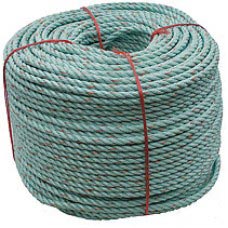When dealing with wire ropes, corrosion is inevitable. Cable corrosion can be defined as the gradual degeneration of materials that occur both naturally and with the help of humans.
Atmospheric oxygen and other environmental factors will slowly corrode wires. Saltwater will speed up the corrosion process, and so that is why steel near the ocean degrades quicker than steel that is inland. Chemicals that are used on and around the ropes will also have a negative factor for corrosion.
Corrosion leads to rust. Rust, when first forming, will actually strengthen the metal. Rust will fill in any holes or cracks in the metal. As rust continues to grow, it will spread throughout the rope and destroy it.
We construct our wire ropes in ways that add significant corrosion resistance to our final products. We do this in two main ways:
- We galvanize our Wire Rope 2 ways. Hot galvanized in which the rope is dipped into hot zinc or drawn galvanizing which also provides a greater strength than hot galv. Either process helps provide a barrier that slows down rust and corrosion.
- We use metal alloys, which have different chemical properties than non-alloyed metals. Adding nickel and chromium to steel creates stainless alloys that have significant corrosion resistance.
We are serious about providing wire ropes that not only work but also have a long lifespan. Give us a call today for more information on purchasing.
RELATED READING FOR WIRE ROPE: